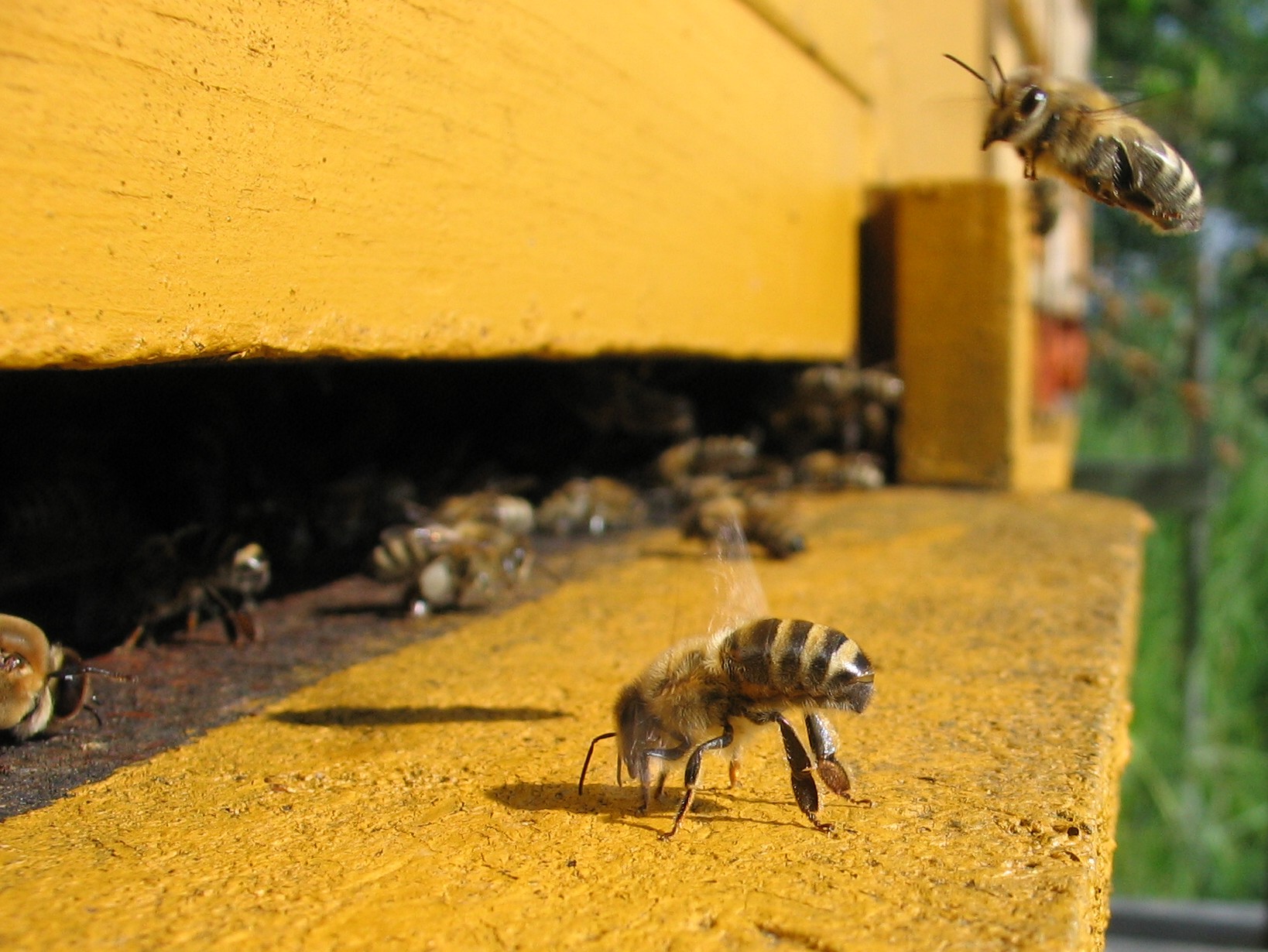
(c) Björn Appel.
(Creative Commons)
None of us like bee stings, but we all like the produce that bees help to sustain, not least the honey that comes from the bees themselves. Bees are an extremely important part of our agricultural eco-system, especially for sustainable and organic farmers. I was therefore very interested to read in Ars Technica’s science blog about a possible cure for colony collapse disorder.
Apiarists were extremely worried when they noticed the sudden and dramatic decline of otherwise healthy aviaries in recent years. Many suggestions were made as to root cause, including cell phone use. It now appears that a cure is on the horizon.
Spanish researchers, according to a new study published in the journal Environmental Microbiology Reports, investigated colony collapse in many Spanish aviaries. They isolated a parasitic fungus, which they discovered to be the root cause of the colony collapse. Treating other diseased colonies with an anti-fungal agent enabled the colonies to recover completely.
I’m looking forwards to a bee-utiful summer!


Honeybees were brought to the U.S. from Europe and have largely displaced native species like hummingbirds and bumblebees. These larger species are necessary to some native crops that honeybees aren't strong enough to pollinate, like tomatoes and peppers.
I have seen some honeybees already this year. But the native bees are gaining ground. I like honeybees, although they are more aggressive than cutter bees (only the females can sting, and they really need to be abused to use it).
I read some ecological journals. They regularly report on new invasive species and their threat. But few seriously propose rolling back the eco-clock to pre-Columbian America, with no honeybees, pigs, horses, garlic, coffee, or ivy (among others).